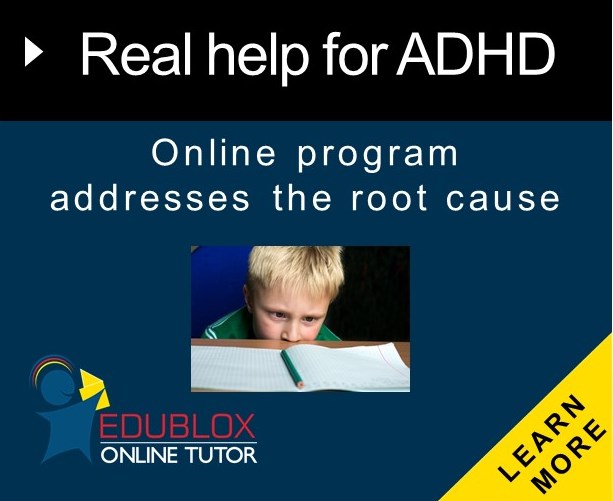 Dear Susan
Dear Susan
My daughter, now 14, has never been consistent in her school work. Her work is poor, to say the least – she failed math and English in term one, grade eight, even though she reads anything from massive books to cereal boxes, and loves math (goes to extra classes twice a week and even every Saturday in preparation for exams, which are now halfway done). She is currently in a high school and she’s also relatively active – an avid swimmer and likes running.
Assessments, medication and still no luck!
In 2010, when my daughter was in grade one, she was diagnosed with type 1 diabetes. We thought that this was the problem behind her lack of concentration and poor school performance. It proved not to be the case. She went on to occupational therapy, I started her on omegas, she has only recently stopped using the generic of Ritalin, she has been assessed by two professionals, who told me that she was right brain dominant and needed to go to remedial school. I applied to the school but they turned down my application due to the fact that they didn’t have a nursing sister in attendance, to administer her insulin. I thus kept her in mainstream school.
In grade seven she was assessed for reading disabilities and we found that her reading was above grade average! But, when she was tested on the short paragraph, one could see that retention of information was not her strong suit.
Exhausted all avenues
I have exhausted my avenues and am kicking myself as a parent for not pursuing a spot at the remedial school at the time, as it seems as though I have contributed in holding her back. But at the time, I was upset at the school for turning her down and had gotten my back up and due to lack of funds, could not pursue other avenues in remedial schools. I’m paying the price every day when I see her marks and watch her move into a pattern of, “I can’t do it, so why try?”
I hope you can help, or at least shed some light as to what I can try next, to assist her with this problem.
Michelle
.
.
Dear Michelle,
First of all, I doubt that anything you have done or have not done would have made a difference to your daughter’s academic welfare, so there is no need for you to feel that you have not done enough. Your care and efforts are clearly visible to all. I also admire your daughter’s ability to lead a full life despite her health problems, which again is a reflection of your good parenting skills.
 Poor memory likely to blame
Poor memory likely to blame
A common reason why a student reads well (in your daughter’s case above grade level), studies hard yet still fails at school is due to a poor memory. Based on the information you provided I would say that this is the root cause of your daughter’s academic problems. You mentioned that, although she reads above grade level, “retention of information is not her strong suit”. Reading without retention means reading without comprehension. In your daughter’s case, one must also consider the role that her diabetes could have played in creating memory problems. Latest studies show that diabetes may affect a person’s cognitive skills, especially their memory.
There are at least seven types of memory involved in learning:
- Visual
- Auditory
- Sequential
- Iconic
- Short-term memory
- Long-term memory
- Working memory
.
The engine of learning
Based on the fact that both visual memory and working memory are significantly related to reading comprehension as well as mathematics, my assumption is that at least one, but probably both these types of memories are causing your daughter to suffer academically.
Visual memory is a person’s ability to remember what he has seen. Various researchers have stated that as much as 80 percent of all learning takes place through the eye. Working memory refers to the ability to temporarily hold several facts or thoughts in memory while solving a problem or performing a task.
For example, to solve an arithmetic problem like (3 X 3) + (4 X 2) in your head, you need to keep the intermediate results in mind (i.e., 3 X 3 = 9) to be able to solve the entire problem. Working memory is necessary when staying focused on a task and blocking out distractions. Dr. Susan Gathercole, a renowned expert from the University of York, calls working memory “the engine of learning” because it has shown to be the primary indicator of academic performance.
The good news, however, is that memory is a skill that CAN be improved. Through training and practice, cognitive skills can be improved, strengthened, and enhanced, and Edublox’s Development Tutor, which I recommend for your daughter, is aimed at doing just that. This program improves, strenthens and enhances cognitive skills including visual and working memory. Try to do at least five sessions per week, and continue until her academics is on par.
Don’t give up Michelle, and keep me posted!
Best wishes,
Susan
Tips for sending questions
Send your questions to [email protected]. Skype name: susanpilot.
Try to give as much detail as possible when sending your questions. Include your child’s age and grade and the specific problems that you have noticed, which concern you.
Sign your letter to Susan with your first name only, or a pseudonym if you prefer. Your identity remains private and we will not publish your contact details.
More about Susan
Susan is an educational specialist in the field of learning problems and dyslexia and has a B.A. Honors in Psychology and B.D. degree from the University of Pretoria. Early in her professional career Susan was instrumental in training over 3000 teachers and tutors, providing them with the foundational and practical understanding to facilitate cognitive development amongst children who struggle to read and write. With over 25 years of research to her name Susan conceptualized the Edublox teaching and learning methods that have helped thousands of children who were struggling academically to read, learn and achieve. In 2007 Susan opened the first Edublox reading and learning clinic and now there are 25 Edublox clinics internationally. Her proudest moments are when she sees a child who had severe learning difficulties come top of their class after one or two years at Edublox. Susan always takes time to collect the ‘hero’ stories of learners whose self-esteem is lifted as their marks improve.



